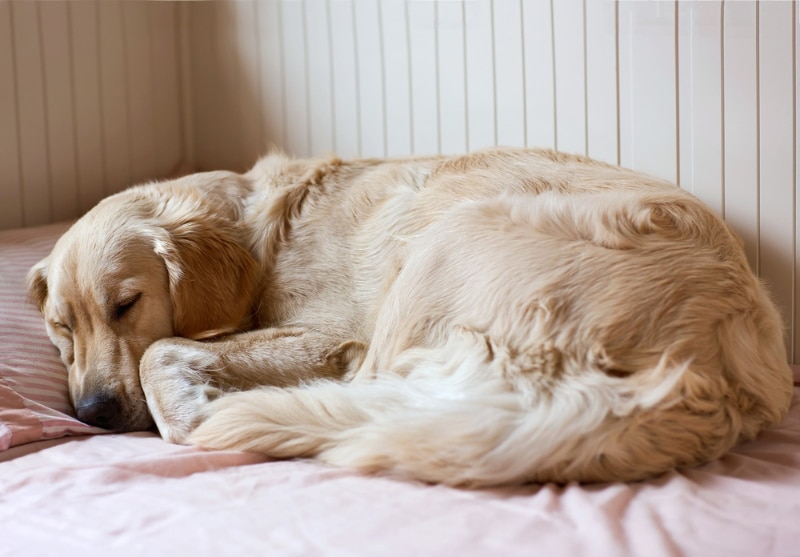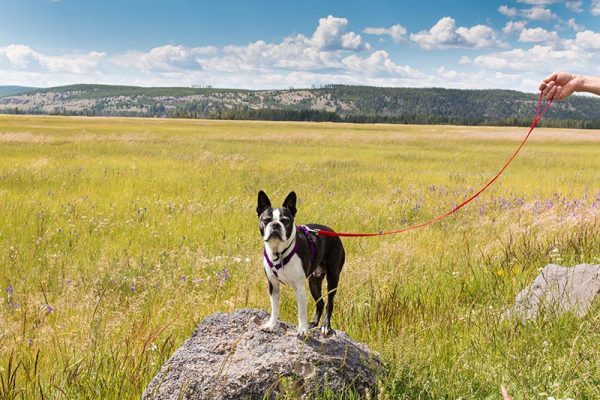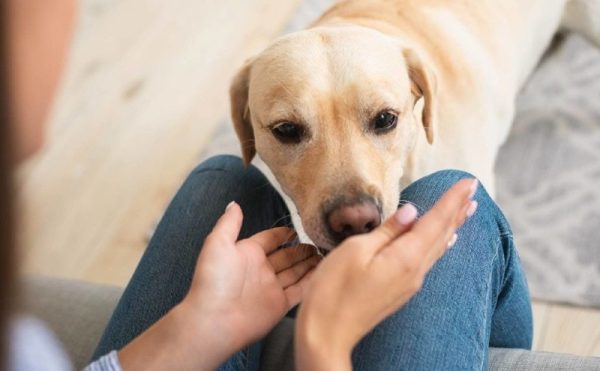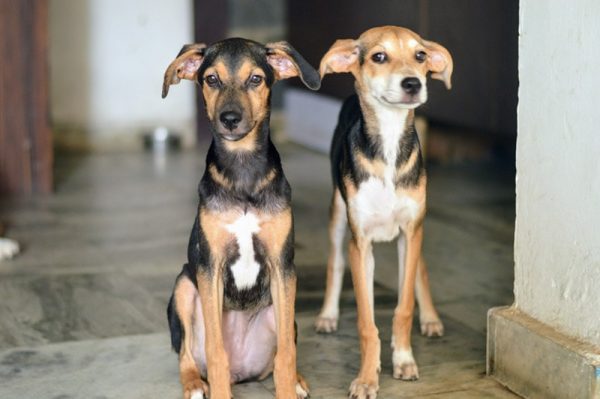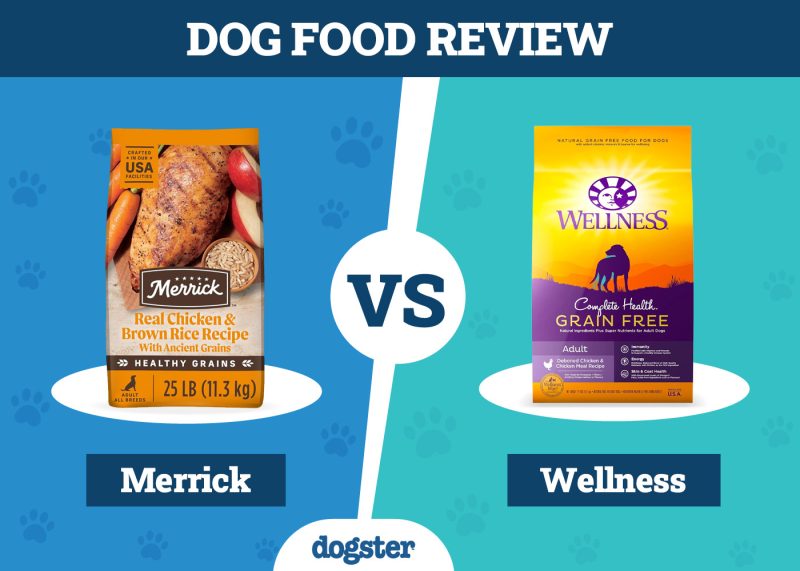In this article
Unfortunately, dogs grow old. When they do, they go through a lot of changes that can be difficult for owners to witness. One problem that some people just assume is natural is that their dog starts to smell. While a bit of this can be put down to aging, a foul smell can be a sign of illness, and your dog might benefit from getting treatment for the condition.
Here, we look at 11 possible reasons that old dogs smell and what you can do to help combat this problem.

Products That Can Help
Various products can help keep your pet smelling fresh, even as they enter their golden years. Consider using odor-neutralizing products. For example, use pet-friendly sprays or wipes on their coats between baths. You could also use odor-neutralizing sprays for their bedding or designated areas in your home.
Here are some of our favorite pet-friendly products that will spruce up not only your pet, but your home and anywhere else their smell may begin lingering.
| Image | Product | Details | |
|---|---|---|---|
For Home
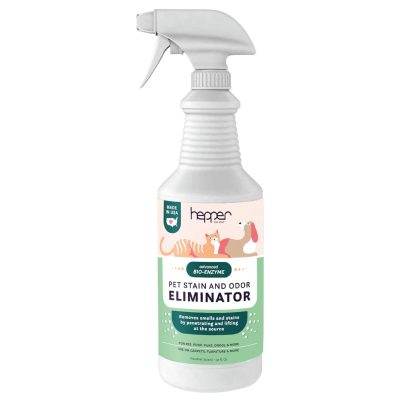
|
Hepper Advanced Bio-Enzyme Pet Stain & Odor Eliminator Spray |
|
Check Price |
For Pet

|
Hepper Oatmeal Pet Shampoo |
|
Check Price |
For On-the-Go

|
Hepper Wash Wipes |
|
Check Price |
At Dogster, we've admired Hepper for many years, and decided to take a controlling ownership interest so that we could benefit from the outstanding designs of this cool pet company!

The 11 Reasons Your Old Dog Might Smell
1. Bad Gas
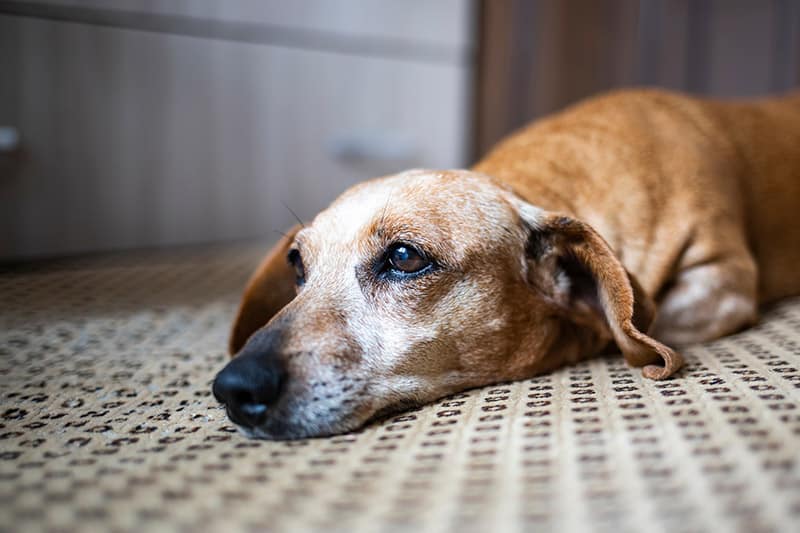
As dogs age, they become more prone to gastrointestinal cancers and inflammatory bowel disease. These diseases can mean they struggle to digest food efficiently, which means they are more prone to gas. Also, their anal sphincter (the muscle that keeps their bottom closed) may lose tone, which means they may release a few more toots than they used to!
2. Incontinence
It is not just gas that might be causing the smell. Your dog’s urinary and bowel sphincters lose strength and tone as they age. When this happens, they are unable to hold in wee and poop, which means the smell you are getting could be urine or feces.
This especially becomes a problem if you don’t notice straight away. As fecal matter dries in, it will start to smell worse, and it’s a lot harder to clean dried poop out of your dog’s coat than it is to get rid of it when it is fresh.
At the very least, you will need to let your dog outside to use the toilet more often. Try walking them more frequently. The movement of walking stimulates movement within the gastrointestinal tract, so it helps feces move through the colon and to the outside world. If your dog does it while out walking, they are less likely to do it while at home.
Nap time is the worst time for this problem because the muscles in the body, including those in the bladder and bowel, relax, which might mean your dog has an accident that isn’t noticed for a while. If urine or feces are allowed to sit on the coat and potentially become dried in, it can be hard to clean. Pet wipes are good for dogs’ sensitive skin, and they can be used to clean poop and wee off your dog’s coat without you having to bathe them too often.
3. Dental Disease
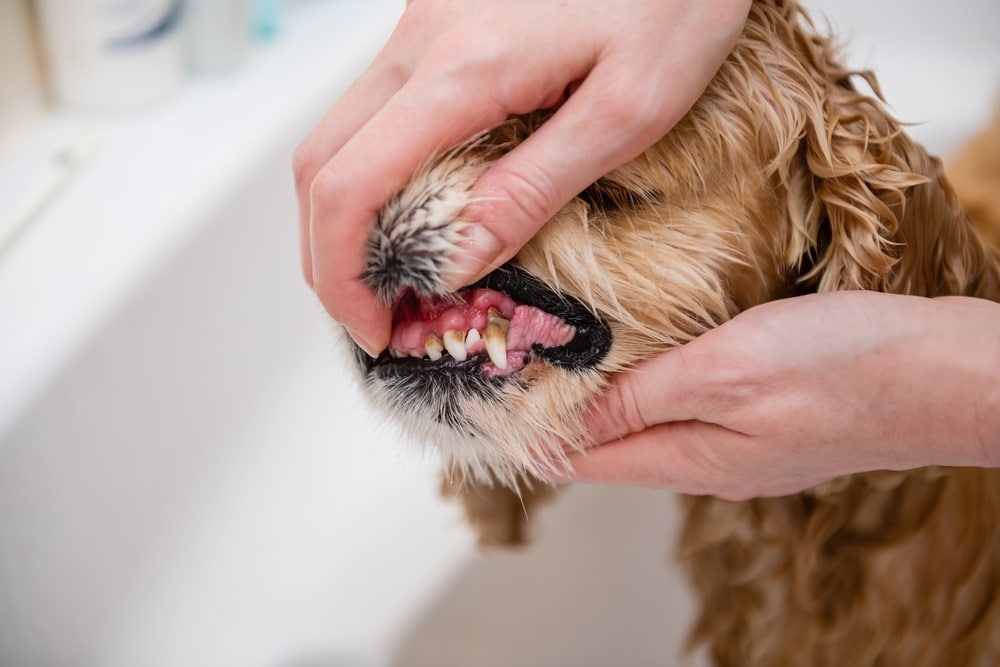
A staggeringly large number of dogs suffer from dental disease of one type or another. Over 80% of dogs over the age of three have active dental disease.1 Periodontitis is especially common and is a type of gum disease that causes damage to the soft tissue around the teeth. This eventually causes the gums to recede, enabling infection to penetrate the tooth site and can lead to bad breath.
Owners need to brush their dogs’ teeth at least three times a week, but even with regular brushing, it’s difficult to get rid of all plaque and to ensure the teeth are fully clean. Over time, plaque thickens and turns to tartar. Tartar is a rough material that allows plaque to stick to it more easily. If this plaque comes into contact with the gums (gingiva), it results in gingivitis. If left without treatment, gingivitis will progress to periodontitis, infection, tooth disease, and smelly breath (halitosis). Check your dog’s teeth for signs of decay and disease, and have them seen by a vet if you do see signs.
4. Kidney Disease
Smelly breath isn’t necessarily caused by dental disease, however. It could be a sign of kidney disease. The kidneys are responsible for flushing toxins from the body, so if your dog has kidney disease, these toxins are allowed to build up in the bloodstream. The build-up of toxins means that your dog’s breath can smell more ammonia-like than usual. So, if your dog’s breath smells more than usual and it has an acrid smell, you should consult a vet.
If you need to speak with a vet but can't get to one, head over to PangoVet. It's our online service where you can talk to a vet online and get the advice you need for your pet — all at an affordable price!
5. Diabetes

Diabetes negatively affects the body’s ability to produce or respond to insulin, which, in turn, means that they are unable to manage their blood sugar levels effectively. As such, diabetes can lead to your dog having sweet-smelling breath. It can also reduce the effectiveness of your dog’s immune system, meaning they are more prone to dental infections, which as discussed, can lead to foul-smelling breath.
Finally, a dog with diabetes will be more prone to urinary tract infections, which often result in some urine on the coat or legs of the dog because they are not able to hold it in so well.
6. Allergies
Allergies can lead to foul smells in several ways. First, even sensitivity to a particular food or other substance can cause increased gas. Second, it can cause allergic dermatitis, which is inflammation of the skin. Your dog will likely scratch and lick the affected areas of the skin, which will encourage yeast and bacteria to take hold of the area. Yeast infections often smell musty, whereas bacterial infections can smell truly disgusting.
7. Skin Irritation and Trauma
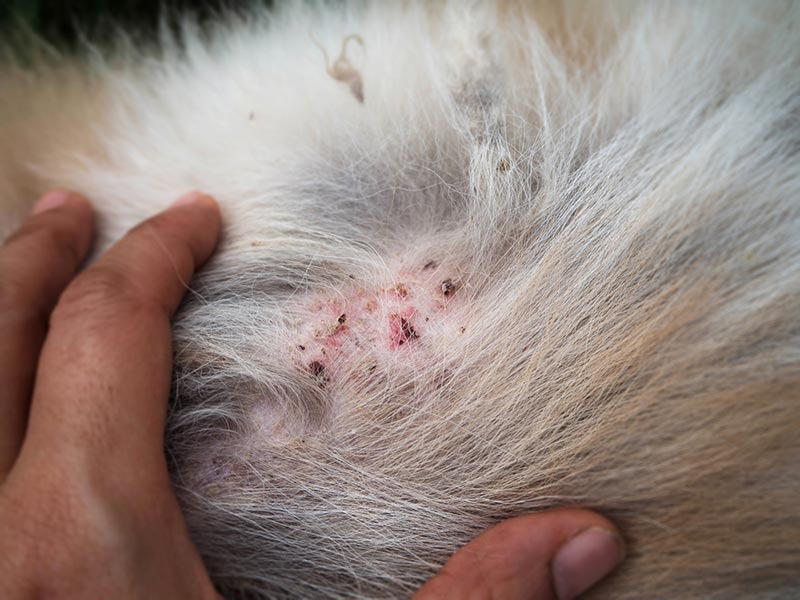
Any skin irritation can lead to infection because cuts and grazes provide the perfect home for bacteria to live and multiply. As dogs age, they may become more prone to skin infections because they will sit for longer periods, allowing areas of the body to get warm and moist.
They may also have osteoarthritis, which means they aren’t able to lift their legs up so well when walking, so scuffs to the toes of older dogs are common. These wounds can become irritated and infected, leading to a smell.
8. Poor Grooming
Some dogs don’t need much help with grooming, but others do. This can be due to their breed, their age, or medical issues that necessitate grooming help, e.g., osteoarthritis, in which turning to clean themselves isn’t possible. Grooming not only cleans the coat, but it also helps remove dead hair and dead skin. As your dog ages, they will find it increasingly difficult to properly groom themselves. Limited mobility means that your dog will not be able to get around and give themselves a good clean all over, and it is usually the rear end that starts to suffer first.
You will need to brush your dog more often as they age, and regular bathing is another thing you should consider. Choosing the right products and bath-time frequency can help prevent your senior dog from harboring odors, remedy ongoing skin issues, and significantly improve their hygiene.
9. Infection
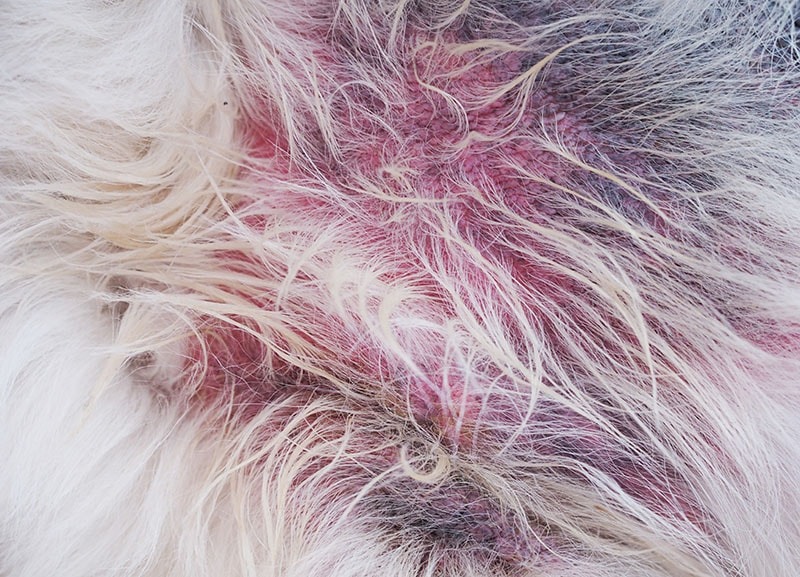
Infections can occur anywhere on the body and even in the body. They are common on the skin, especially if your dog is scratching more than they used to. They can also be common in the ears, the mouth, and around the teeth. The smell comes from bacteria living in the wound site, and besides being smelly, an infection can be extremely uncomfortable for your dog.
Look for signs of infection on the skin, as well as in the ears, mouth, and around the nose. If you notice an area that might be infected, take your dog to the vet to be checked over.
10. Abnormal Anal Gland Secretion
Anal gland secretions smell bad at the best of times, but if the anal glands have become infected, the smell gets even worse. Watch for signs, such as your dog scooting their bum along the floor, incessant licking, and unusual secretions on your dog’s bed. You can get medication to help, but the sooner you visit the vet for a check-up, the better. Anal gland infections can be very painful and can progress to anal gland abscesses if not treated promptly.
11. Contact Odors
Your dog may be the original cause of a lot of the odors you can smell, but they may not be the only carrier. They lie in their beds for hours at a time and may also lie on the furniture and even in your bed. If your dog’s coat smells, this smell will transfer to surfaces that the dog touches, and if they suffer from incontinence, the smell can get very strong very quickly.
In addition to grooming your dog more often, you should clean the surfaces they come into contact with.

Conclusion
Dogs do have a natural odor that some people do not mind, but others find offensive. As a dog ages, the odors that they give off can worsen. The smell can come from a weak bladder or weakened bowel muscles. It can also be caused by infection or dental disease.
If you are worried that illness or infection is causing your dog’s smell, take them to be seen by a vet while also increasing how often you groom your dog and clean the surfaces they lie on.
Featured Image Credit: Petr Jilek, Shutterstock
